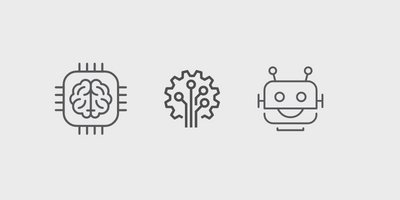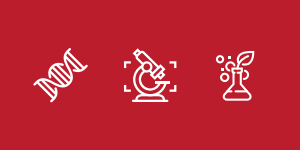Disruptive Technologies
Research
Building Blocks of the 4th Industrial Revolution
We believe that technological progress will cause rapidly accelerating societal change over the coming decades.
A wide range of technologies — artificial intelligence, biotechnology, nanotechnology, robotics, augmented and virtual reality, blockchain, drones, computational medicine, modern space exploration — have already started reaching commercial viability.
Each one of these technologies will be individually disruptive. In aggregate, these technologies will have a compounding effect on the economy, social structures, legal systems, income distribution, governance, education, and warfare — and raise fundamental questions on how society is organised.
This 4th Industrial Revolution is dynamically engaging in key areas which relate to the following pillars:
- Crypto-Assets and Blockchain
- Machine Learning and Big Data
- Metaverse/XR/WEB3
- Modelling and Simulation
The University of Nicosia is at the forefront of these developments and engages in high-quality research, cutting-edge initiatives, academic/industry collaborations, and the development of academic as well as professional training programmes that explore and tackle the challenges presented by the 4th Industrial Revolution.

MACHINE LEARNING/ BIG DATA
Data is an invaluable asset that, when analysed on a large scale, can help in tremendous ways, not only in business applications but in the broader society. By 2025, the amount of data generated in a single day globally is expected to reach 463 exabytes. Machine learning and the application of statistical models are the only way this huge amount of information can be properly utilised. Machine learning has applications in big data analysis for healthcare, financial forecasting, predicting trends, exploring behaviour, and more.
UNIC Initiatives:

MODELLING & SIMULATION
Advanced modelling, simulation, and automation significantly impact business and everyday life. They have the potential to positively transform every aspect of society by improving efficiency and productivity and increasing safety. In addition, computer simulations in conjunction with advanced computational techniques such as Machine Learning and Deep Learning can advance our knowledge in complex scientific and technological processes and reduce uncertainty. Autonomous systems, including robotics, have been used for many years across industries. However, they are gradually entering the mainstream with smart interconnected devices, drones, self-driving cars, and many more applications, amplified by the increasing processing power of artificial intelligence, computational modelling and simulations.
UNIC Initiatives:

METAVERSE/XR/WEB3
Today, the large majority of personal and professional activity occurs via a computer or telephone screen in a digital format. Over the next decade, this digital layer of our lives will further develop into a concept known as the metaverse. The metaverse will provide unprecedented opportunities for innovation and economic development. People and communities will be able to collaborate on a global basis, on both economic and social objectives. Existing constraints of physical geography will become much less important.
UNIC Initiative:

CRYPTO-ASSETS & BLOCKCHAIN
Crypto-assets and blockchain are fundamental technological breakthroughs with significant financial and societal implications. There are numerous advantages in adopting them, primarily solving key issues like trust in a network via decentralisation, digital asset ownership, authentication and traceability, improved speed and efficiency, cost reduction, enhanced levels of security, automation, and more. It is imperative to study these technologies and contribute to their effective application in industry, government, and education, as well as evaluate their impact on society at large.
UNIC Initiative:

FUTURE OF BIOMEDICINE/BIOTECHNOLOGY
Biomedical/Biotechnology research and development has already improved society in significant ways and with the rapid advancement of science and technology, it is poised to make an even larger impact. From medical applications such as the treatment and prevention of genetic and previously incurable diseases to tackling world hunger and the reduction of our carbon footprint to holistically managing human, animal and environmental health, biomedicine/biotechnology research has the potential to improve the quality of life for millions of people.
UNIC Initiatives:
- CENIBRE
- One Health Initiative
- Bioactive Molecules Research Center
